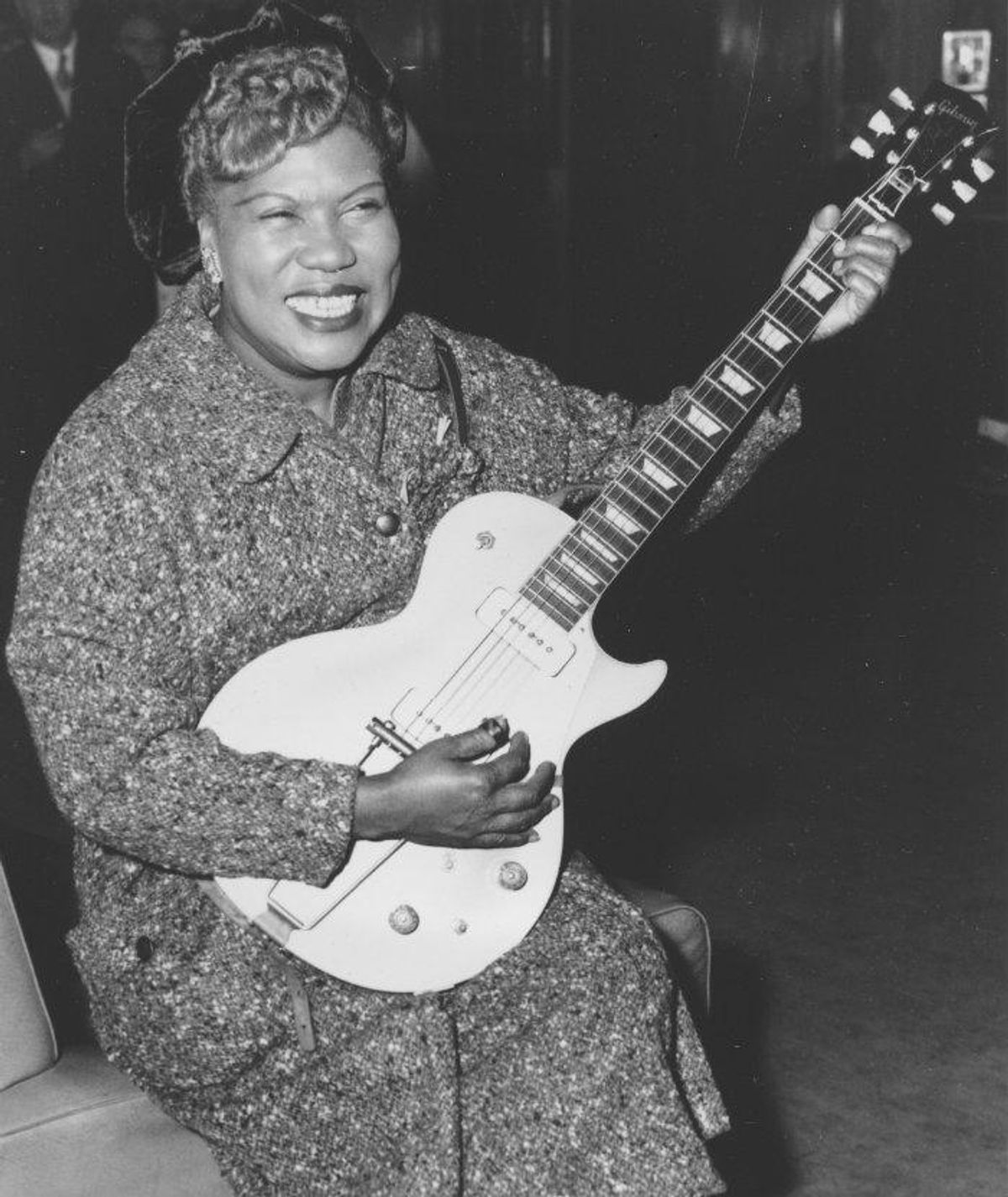Few things are as satisfying as long-awaited recognition, especially when that recognition involves being inducted into the Rock and Roll Hall of Fame. Though the new induction for Sister Rosetta Tharpse comes decades after the singer's death, the queer rocker's inclusion is strikingly relevant and deserved.
Coming onto the scene with her first hit, "Rock Me," when Elvis Presley, a man who would cite her as an influence, was still in diapers, Tharpe made rock gospel her calling card. "Elvis loved Sister Rosetta," said Jordanaires' Gordon Stoker to Rolling Stone, particularly her "incredible" skill with the guitar. The Jordonaires backed Tharpe long before working with Presley. "That's really what attracted Elvis: her pickin'," said Stoker. "He liked her singing, but he liked her that pickin' first - because it was so different."
Related | Kate Bush & Nina Simone Among 2018's Rock & Roll Hall of Fame Nominees
Born in Cotton Plant, Arkansas in 1915, then Rosetta Nubin started singing with her mother at churches and revivals as early as age six. After moving north, to Chicago, Tharpe began fusing urban and rural influences into her music. After a failed marriage to a preacher as a teenager, Tharpe met singer Marie Knight in 1946. After recording "Up Above My Head," the pair teamed up and toured. According to historian Gayle Wald, the pair became lovers in an "open secret," detailed in her biography of Tharpe, Shout, Sister, Shout!
Though her popularity waned, her music never drifted into obscurity for those versed in their rock and roll history. "Sister Rosetta Tharpe was anything but ordinary and plain," said Bob Dylan on his Theme Time Radio Hour show. "She was a big, good-lookin woman, and divine, not to mention sublime and splendid. She was a powerful force of nature. A guitar-playin', singin' evangelist." Recently Miranda Lambert, one of the biggest names in contemporary country, has been opening shows with a clip of Tharpe performing "Up Above My Head." Watch one of Tharpe's best moments, below, and read the full Rolling Stone piece, here.

























































































